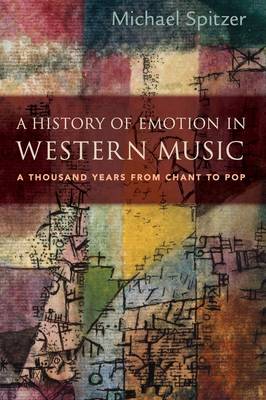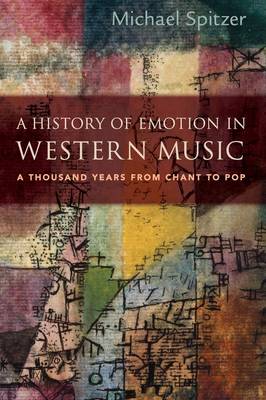
- Retrait gratuit dans votre magasin Club
- 7.000.000 titres dans notre catalogue
- Payer en toute sécurité
- Toujours un magasin près de chez vous
- Retrait gratuit dans votre magasin Club
- 7.000.0000 titres dans notre catalogue
- Payer en toute sécurité
- Toujours un magasin près de chez vous
A History of Emotion in Western Music
A Thousand Years from Chant to Pop
Michael Spitzer
Livre relié | Anglais
125,45 €
+ 250 points
Description
When asked to describe what music means to them, most people talk about its power to express or elicit emotions. As a melody can produce a tear, tingle the spine, or energize athletes, music has a deep impact on how we experience and encounter the world. Because of the elusiveness of these musical emotions, however, little has been written about how music creates emotions and how musical emotion has changed its meaning for listeners across the last millennium. In this sweeping landmark study, author Michael Spitzer provides the first history of musical emotion in the Western world, from Gregorian chant to Beyoncé. Combining intellectual history, music studies, philosophy, and cognitive psychology, A History of Emotion in Western Music introduces current approaches to the study of emotion and formulates an original theory of how musical emotion works. Diverging from psychological approaches that center listeners' self-reports or artificial experiments, Spitzer argues that musical emotions can be uncovered in the techniques and materials of composers and performers. Together with its extensive chronicle of the historical evolution of musical style and emotion, this book offers a rich union of theory and history.
Spécifications
Parties prenantes
- Auteur(s) :
- Editeur:
Contenu
- Nombre de pages :
- 456
- Langue:
- Anglais
Caractéristiques
- EAN:
- 9780190061753
- Date de parution :
- 28-09-20
- Format:
- Livre relié
- Format numérique:
- Genaaid
- Dimensions :
- 183 mm x 257 mm
- Poids :
- 1016 g

Les avis
Nous publions uniquement les avis qui respectent les conditions requises. Consultez nos conditions pour les avis.






